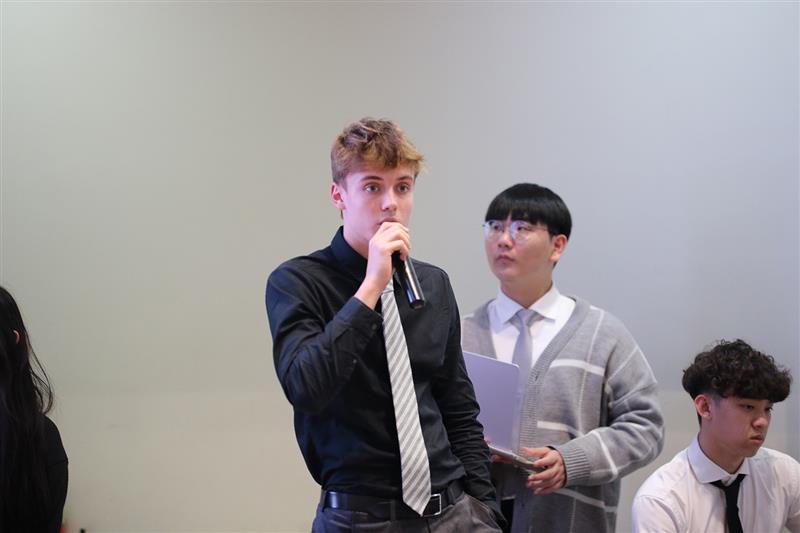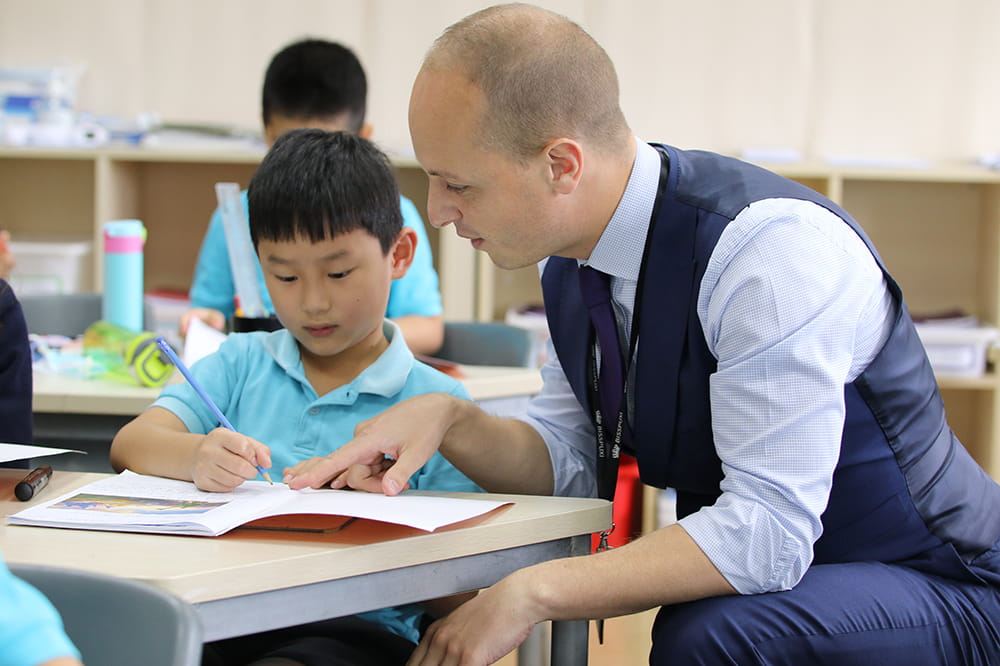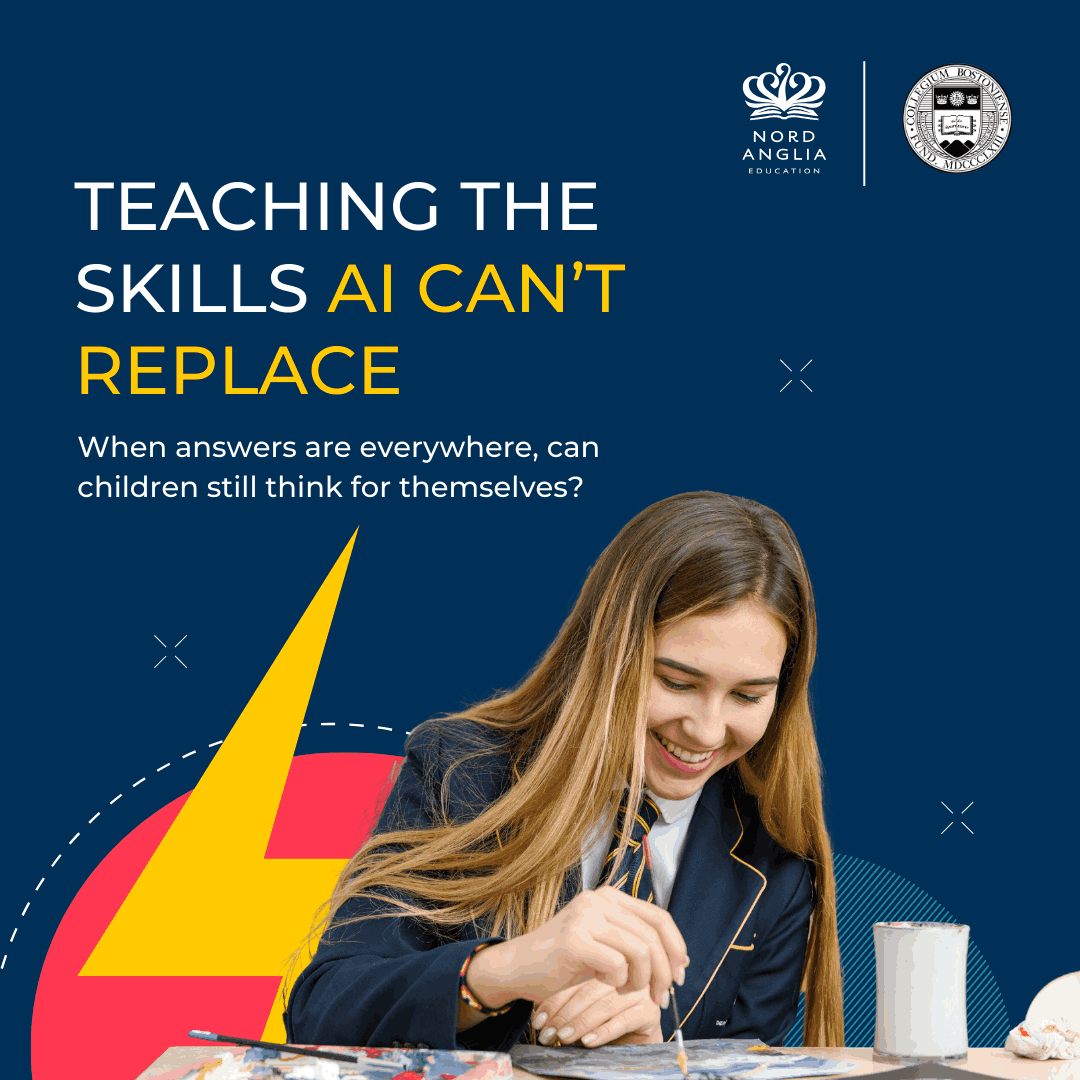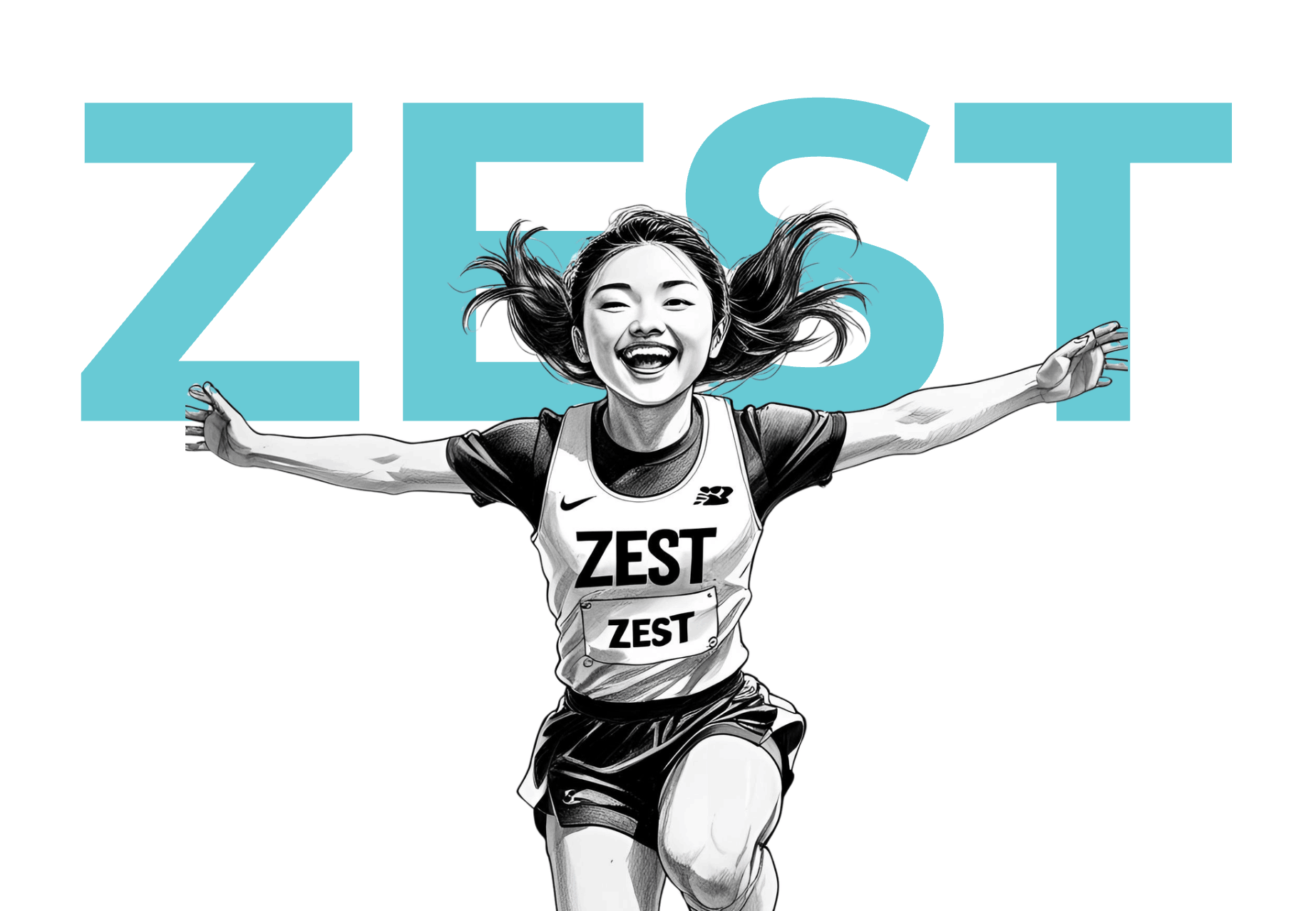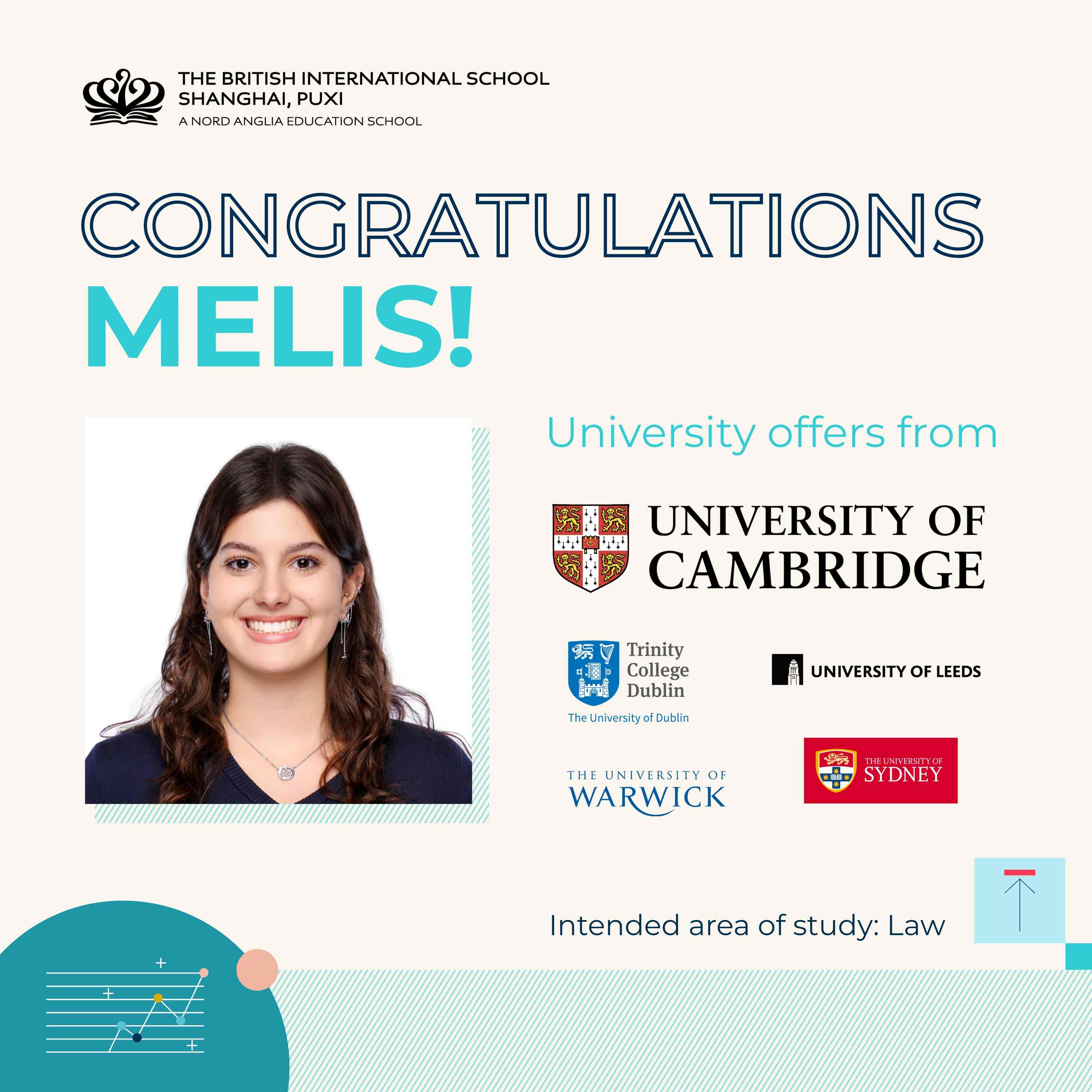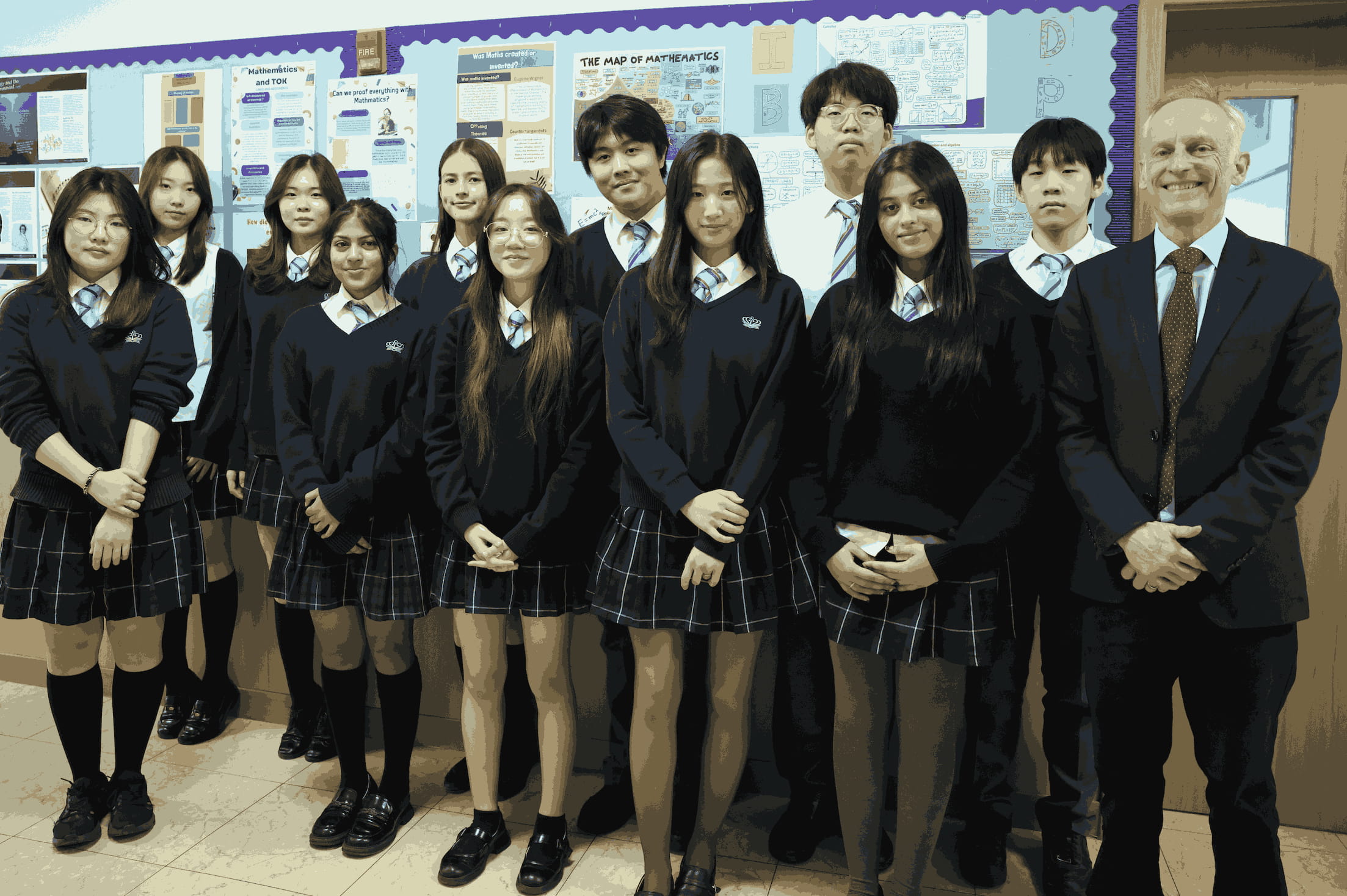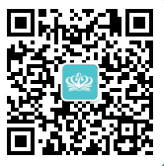On 15 March, the stage was set for a display of collaborative genius at the ‘BISS Lions’ Den’ finale, held in Stage One. This pivotal event marked the culmination of the IB Collaborative Science Project, an initiative that required Year 12 students to meld their diverse scientific expertise to create solutions for sustainability challenges. The project's core aims were to foster interdisciplinary connections, encourage creative problem-solving, enhance communication and collaboration, and deepen the students' appreciation for the multifaceted impacts of science in our global community. It also involves students in a compulsory 10-hour activity, applying their Approaches to Learning (ATLs), to ensure they gain practical experience and insights into the collaborative nature of scientific research and problem solving.
The journey began with an introductory session 7 February when students were briefed on the objectives and requirements of the project. In the planning phase, the students, divided into ten groups, meticulously strategised their approach towards their chosen sustainability themes. Teachers played a pivotal role as mentors, guiding each group through the planning process, offering insights, and ensuring that the students’ ideas were scientifically viable and sustainable.
Our teachers' unwavering commitment provided the scaffolding for the students' ingenuity. They steered brainstorming sessions, facilitated the use of lab equipment for prototypes and honed the students’ presentation skills. This nurturing environment was instrumental in enabling the students to navigate through the various stages of the project, from conception to realisation.
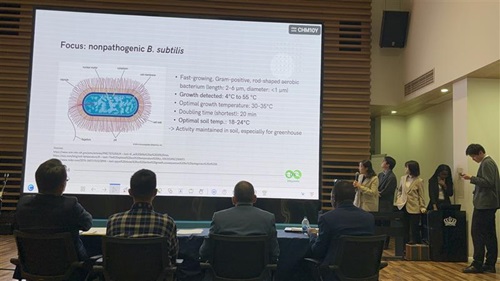
The panel, composed of Mr. Heungtaek Shim, a Volkswagen car battery engineer; Mr. Andrew Joy, Head of Secondary; Mr. Jack Armstrong, Year 9 Leader and Teacher of Geography; Mr. Joseph Gichana, Head of TOK and Teacher of Economics; and Mr. Felipe Tang, our Senior Laboratory Technician, provided a rich tapestry of feedback. Their diverse expertise added a depth of perspective to the evaluation process, recognising not only the scientific ingenuity but also the potential market viability and educational impact of each project.
Group 1's EcoWorm captivated the audience with their ingenious device designed to cleanse river water of pollutants. Their reflection will delve into the self-motivation required to bring EcoWorm from concept to prototype.
Group 2 presented a cutting-edge biodegradable disposable mask, which balanced sports efficiency with breathability. Their journey in effective communication, despite challenges, will be a cornerstone of their Managebac reflection.
Group 3 crafted a bioplastic pen with embedded seeds - a symbol of growth and renewal. They will explore TOK aspects such as the role of innovation in environmental responsibility.
Group 4's BLÉND demonstrated how sustainable diets could be enhanced with insect-derived proteins. Their reflection will highlight teamwork dynamics and integrating diverse perspectives.
Group 5 engineered an energy monitoring system to optimise resource use in schools. Reflections from this group will underscore their personal strengths and weaknesses as they navigated this project.
Group 6's AIR ROMANCER OXICAN showcased a multi-faceted approach to air purification. Their Managebac submission will discuss the self-awareness gained throughout the project's lifecycle.
Group 7's River-Sweep proposed a remote-controlled solution to river waste. They are tasked with reflecting on their ability to work cohesively in a group setting.
Group 8 introduced the MUNCHBox, a sustainable packaging alternative. Their reflections will touch on the successful incorporation of feedback and different viewpoints.
Group 9's Paper Remade Project emphasised the reuse of scrap paper. In their reflection, they will provide specific examples of how they approached their project with determination and creativity.
Group 10 innovated with Sprackaging, a spray-on packaging solution. Their reflections will capture their communication triumphs and the integration of TOK elements in their project.
The culmination of this journey is not the finale but the reflective process that follows. Each student is tasked with penning a personal reflection in Managebac, providing a window into their individual contributions and learning experiences. They will document how they maintained self-motivation, the highs and lows of their communication efforts, the integration of TOK elements in their work, the essence of collaboration, and the personal discoveries made about their strengths and weaknesses.
The ‘BISS Lions’ Den’ is more than just a school event; it's a microcosm of the real world where young scientists are born and groomed. Through their reflections, students will solidify their understanding of the ATL skills practised and the knowledge gained. As they conclude their reflections with examples from their experience, the BISS community stands proud of their accomplishments and the learning curve they have embraced. The ‘BISS Lions’ Den’ may have ended, but the ripples of its impact will be felt long into the future as these young innovators and thinkers step forward to take on the world.
Reflections:
I was highly impressed by the quality of presentation and the creativity shown by each group to apply learning in Science to real-world problems.
Mr. Andrew Joy
It was fantastic to see the innovation and adaptive thinking demonstrated by our future leaders. I was very proud of the geographical understanding and creativity. It gave me hope for the world we are moving towards.
Mr. Jack Armstrong
The CSP was a very enjoyable experience because I was able to work with people who I normally don’t work with which was an interesting experience. I was also able to apply what I have learnt in Computer Science classes to real world applications to create a blended model of our product.
Matan Kastoriano, Year 12
During the Collaborative Science Project, our collaboration transcends the individual scientific disciplines. CSP allowed us to embark on a journey of exploration, merging our diverse perspectives and interests to create a solution for a contemporary problem. Through this project, we not only expanded our understanding of the society around us but also gained a shared achievement.
Emily Du, Year 12


